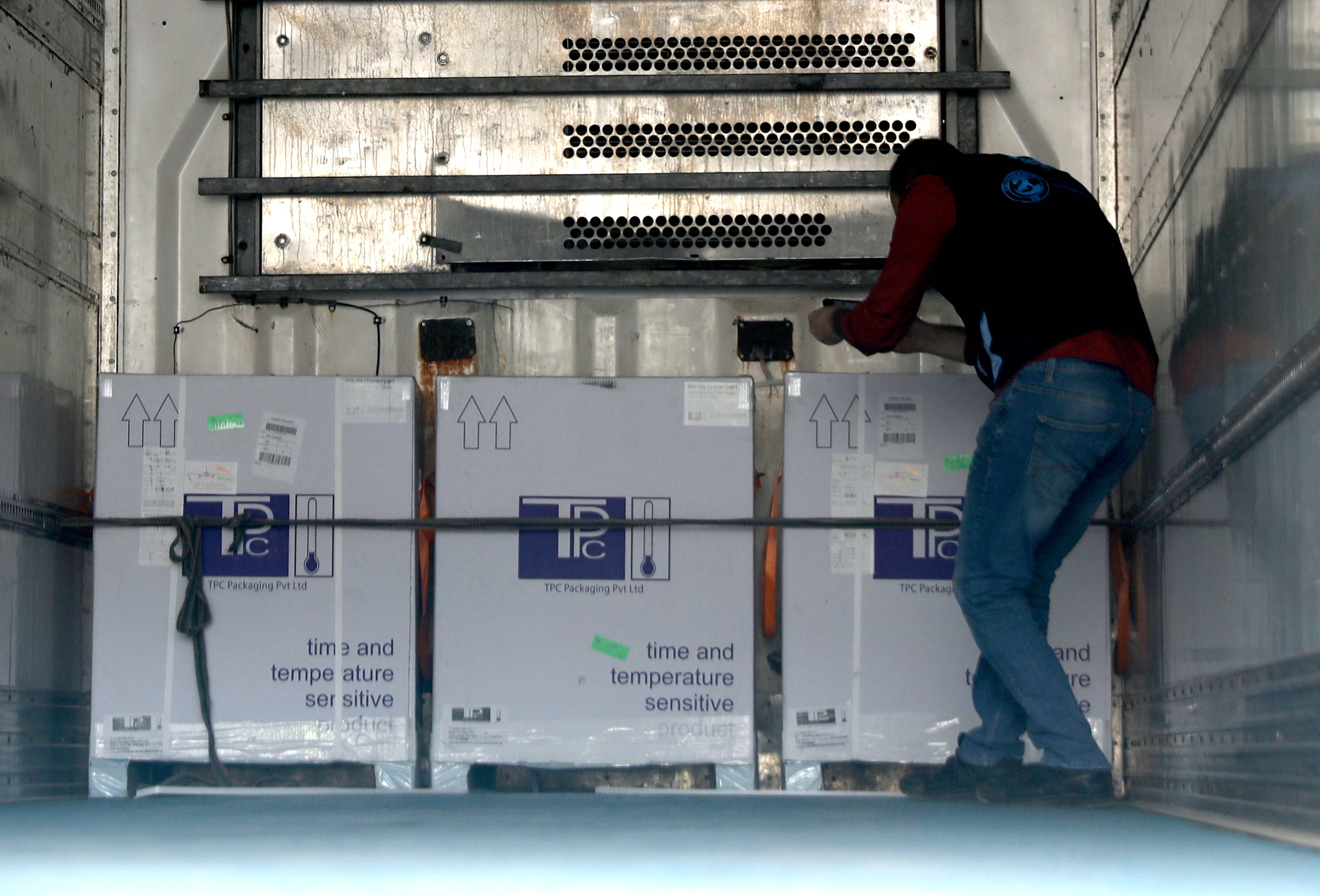Vaccine campaign begins amid virus surge in rebel-held Syria
A COVID-19 vaccine campaign has kicked off in Syria’s last rebel-held enclave

Your support helps us to tell the story
From reproductive rights to climate change to Big Tech, The Independent is on the ground when the story is developing. Whether it's investigating the financials of Elon Musk's pro-Trump PAC or producing our latest documentary, 'The A Word', which shines a light on the American women fighting for reproductive rights, we know how important it is to parse out the facts from the messaging.
At such a critical moment in US history, we need reporters on the ground. Your donation allows us to keep sending journalists to speak to both sides of the story.
The Independent is trusted by Americans across the entire political spectrum. And unlike many other quality news outlets, we choose not to lock Americans out of our reporting and analysis with paywalls. We believe quality journalism should be available to everyone, paid for by those who can afford it.
Your support makes all the difference.A COVID-19 vaccine campaign kicked off in Syria’s last rebel-held enclave on Saturday, with a 45-year-old front-line nurse becoming the first to receive a U.N.-secured jab.
Nizar Fattouh, a nurse in Ibn Sina Hospital in Idlib city, received one of 53,800 AstraZeneca vaccines delivered to northwest Syria through Turkey on April 21.
The vaccines come amid a new surge of infections in the war-torn country. Syria supplies of oxygen are depleted and its hospitals were already overwhelmed from 10 years of conflict and deteriorating health care services.
The AstraZeneca vaccines were delivered to the rebel-controlled area through a border crossing with Turkey, the northwestern territory’s only gateway to the outside world.
Idlib health official Yasser Najib said the jabs were provided through the U.N.-led COVAX program for the world’s poor and developing nations.
He said the vaccination campaign will last 21 working days, starting Saturday in two of the enclave's largest hospitals. On Monday, the campaign will unfold in other health centers, Najib said.
He said the small quantity will prioritize health care workers and aid personnel who are on the front line of the battle against the coronavirus. Infections among health care workers in the enclave have been high, accounting for as many as 30% of confirmed cases at one point.
There are over 21,000 confirmed infections in the rebel-held enclave, home to 4 million people, most of them displaced from different parts of Syria by the conflict. At least 641 have died in the area from COVID-19 related complications. Conflict has subsided in the area, but outbreaks of violence are still reported.
Syria has been divided by the war so vaccinations in government-controlled areas, nearly 60% of the country's territory, are managed and take place separately.
The Syrian government has secured 200,000 vaccines through the U.N.-led program but also has obtained doses from China, Russia and the United Arab Emirates. A limited inoculation campaign had also begun in government-controlled areas that are experiencing increased pressure on hospitals.
In the Kurdish-controlled northeast, authorities announced this week they will extend a partial lockdown amid a surge in infections. The one-week extension comes as an international aid group warned of oxygen shortages in the region.
Northeast Syria, administered by a Kurdish-led authority, doesn’t have a separate inoculation program and is dependent on Damascus for testing for the virus and for vaccinations. The local health department reported 123 new cases and 14 deaths in the region, which is home to nearly 4 million people and borders Turkey and Iraq. The new cases raise to nearly 15,800 the total registered coronavirus cases in the region, including 571 deaths.
The World Health Organization has said the vaccination campaign in Syria aims to inoculate 20% of the total population residing in the country by the end of the year.